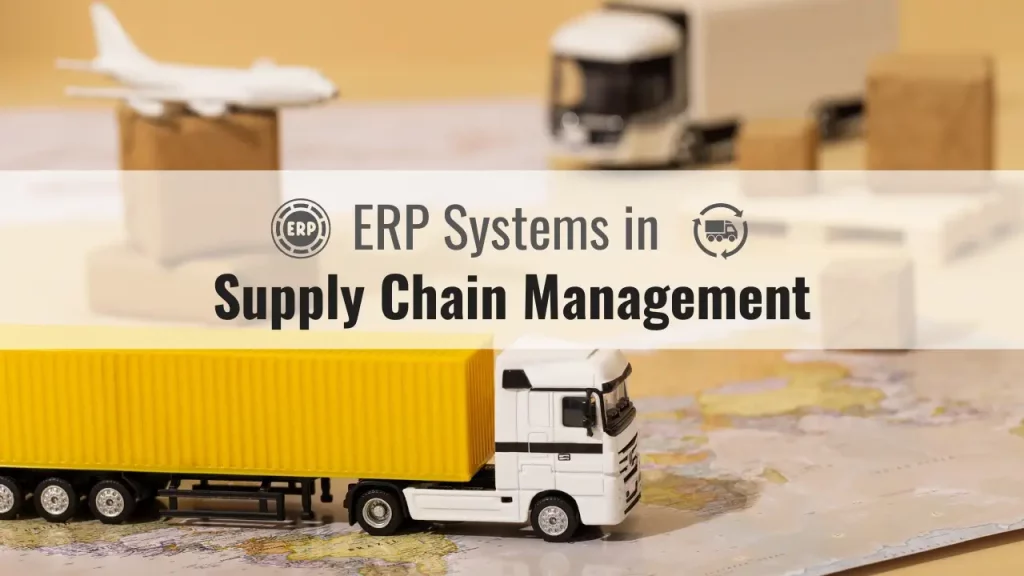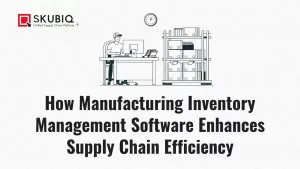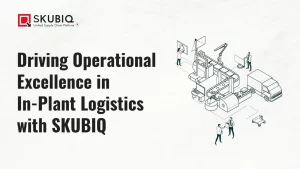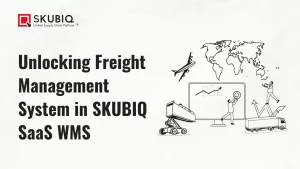In the realm of modern business, the pivotal role of ERP systems in Supply Chain Management cannot be overstated. These systems have evolved to meet the complexities of contemporary supply chains, offering comprehensive solutions that integrate and optimize various processes seamlessly.
The Evolution of ERP Systems in SCM
ERP systems have undergone a significant evolution, transforming from standalone solutions to integrated platforms that address the complexities of supply chain management. Historically, businesses grappled with coordinating diverse supply chain elements, from procurement to production and distribution. ERP systems emerged as a paradigm shift, providing a centralized framework for data consolidation and real-time insights.
Role of ERP in Streamlining SCM Operations
ERP systems serve as central hubs, facilitating the integration of data from different departments. This integrated approach enhances collaboration and communication, ensuring interconnectedness across the supply chain. Inventory management is a core function, allowing businesses to optimize stock levels, reduce excess inventory, and minimize holding costs. Accurate demand forecasting, enabled by ERP systems, empowers businesses to make informed decisions and prevents stockouts or overstock situations.
TMS Integration for Efficient Transportation
Efficient transportation is fundamental to a well-functioning supply chain. ERP systems with integrated Transportation Management Systems (TMS) enhance logistics operations by providing visibility into transportation processes. TMS integration enables businesses to optimize routes, reduce transit times, and minimize transportation costs. Real-time tracking of shipments allows for better decision-making and enhances customer satisfaction by providing accurate delivery timelines. Additionally, TMS integration facilitates collaboration with external partners, ensuring smooth communication and coordination throughout the transportation network.
Enhancing Supply Chain Visibility
Visibility into the supply chain is crucial for making informed decisions and responding promptly to market dynamics. ERP systems provide a holistic view of the entire supply chain, allowing businesses to identify bottlenecks, monitor performance, and implement corrective measures. Real-time data analytics enables tracking of goods, monitoring of inventory levels, and assessment of supplier and vendor performance. This visibility is invaluable in identifying areas for improvement and optimizing processes for greater efficiency.
Key Features of Supply Chain Management ERP Software
1. Integration Capabilities
Successful ERP systems seamlessly integrate with existing software and systems, ensuring a cohesive flow of information across the organization.
2. Scalability
As businesses grow, their supply chain needs evolve. Scalable ERP solutions adapt to changing requirements, accommodating increased data volume and complexity.
3. Automation
Automation of routine tasks, such as order processing and inventory management, reduces manual errors and accelerates processes, contributing to overall efficiency.
4. Real-time Analytics
The ability to access real-time data and analytics empowers businesses to make informed decisions promptly, enhancing agility in responding to market changes.
5. Collaboration Tools
Effective ERP systems foster collaboration among different departments and external partners, promoting transparency and communication within the supply chain.
6. Compliance Management
Ensuring compliance with industry regulations is crucial. ERP systems with robust compliance management features help businesses adhere to standards and avoid legal complications.
Challenges and Solutions in ERP Implementation
While the benefits of ERP systems in supply chain management are evident, the implementation process is not without challenges. Common hurdles include resistance to change, data migration issues, and the need for significant investments. Overcoming these challenges requires a strategic approach, effective change management, and collaboration between IT and business teams.
Resistance to Change
Employees may resist the transition to ERP systems due to fear of job loss or unfamiliarity with new technologies. To address this, businesses should invest in comprehensive training programs, highlighting the advantages of ERP adoption and providing continuous support during the transition. Involving employees in the decision-making process can also foster a sense of ownership and reduce resistance.
Data Migration Challenges
Migrating data from legacy systems to ERP platforms can be complex and prone to errors. Businesses should conduct thorough data audits, clean up inconsistent or redundant data, and establish a robust data migration plan. Testing is crucial to identify and rectify any issues before full-scale implementation. Engaging experienced consultants or specialists can streamline the data migration process.
Financial Investment
Implementing ERP systems involves a significant financial investment, including software licenses, hardware infrastructure, and ongoing maintenance costs. To mitigate financial challenges, businesses should conduct a cost-benefit analysis to evaluate the long-term advantages of ERP adoption. Additionally, exploring cloud-based ERP solutions can provide a more cost-effective alternative, eliminating the need for substantial upfront investments in hardware.
Integration with Existing Systems
Integrating ERP systems with existing software and systems can be challenging, especially in organizations with diverse IT landscapes. Businesses should choose ERP solutions with robust integration capabilities and collaborate closely with IT teams to ensure a smooth integration process. Adopting modular implementation approaches can also simplify integration by focusing on specific business processes or departments at a time.
Overcoming Challenges for Successful ERP Implementation
Addressing these challenges requires a holistic approach that encompasses strategic planning, effective communication, and collaboration across all organizational levels. Businesses should prioritize change management, ensuring that employees are adequately trained and engaged in the adoption process. Partnering with experienced ERP consultants and leveraging their expertise can significantly contribute to successful implementation.
Future Trends in ERP Systems for SCM
As technology continues to advance, the future of ERP systems in Supply Chain Management holds exciting possibilities. Emerging trends are shaping the next generation of ERP solutions, offering innovative features and capabilities. Some key trends include:
1. AI and Machine Learning Integration
The integration of AI and machine learning into ERP systems enhances predictive analytics, enabling more accurate demand forecasting, inventory optimization, and decision-making.
2. Blockchain for Supply Chain Transparency
Blockchain technology provides a secure and transparent way to track and verify transactions across the supply chain. This ensures data integrity, reduces fraud, and enhances trust among supply chain participants.
3. Edge Computing for Real-time Processing
Edge computing brings data processing closer to the source, allowing for real-time analysis and decision-making. This is particularly beneficial for supply chain processes that require instant responses and actions.
4. Enhanced User Experience with ERP UX/UI Design
Improvements in user experience (UX) and user interface (UI) design are becoming central to ERP solutions. Intuitive interfaces, personalization options, and mobile accessibility contribute to a more user-friendly experience.
5. Cloud-Based ERP Adoption
The shift towards cloud-based ERP solutions continues, offering scalability, flexibility, and cost-effectiveness. Cloud-based ERP systems provide businesses with the agility to adapt to changing market conditions and scale operations seamlessly.
In conclusion, the role of ERP systems in Supply Chain Management is integral to the success of modern businesses. These systems not only streamline supply chain and operations but also contribute to enhanced visibility, collaboration, and decision-making. While challenges exist in the implementation process, strategic planning, effective change management, and leveraging emerging trends can pave the way for successful ERP adoption. As technology continues to evolve, businesses must stay abreast of the latest developments to harness the full potential of ERP systems and ensure continued competitiveness in the dynamic landscape of supply chain management.



